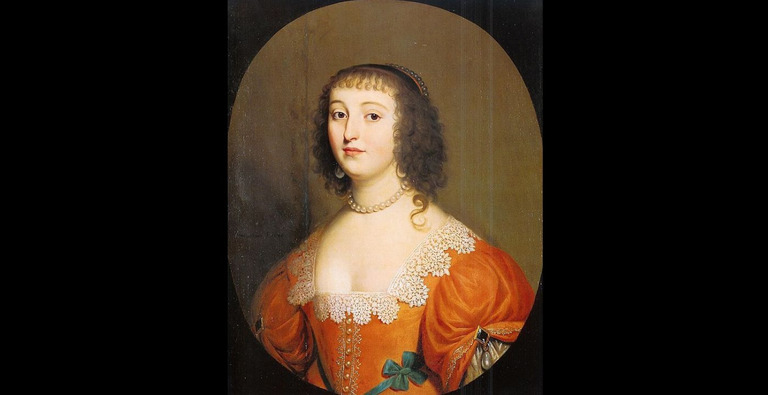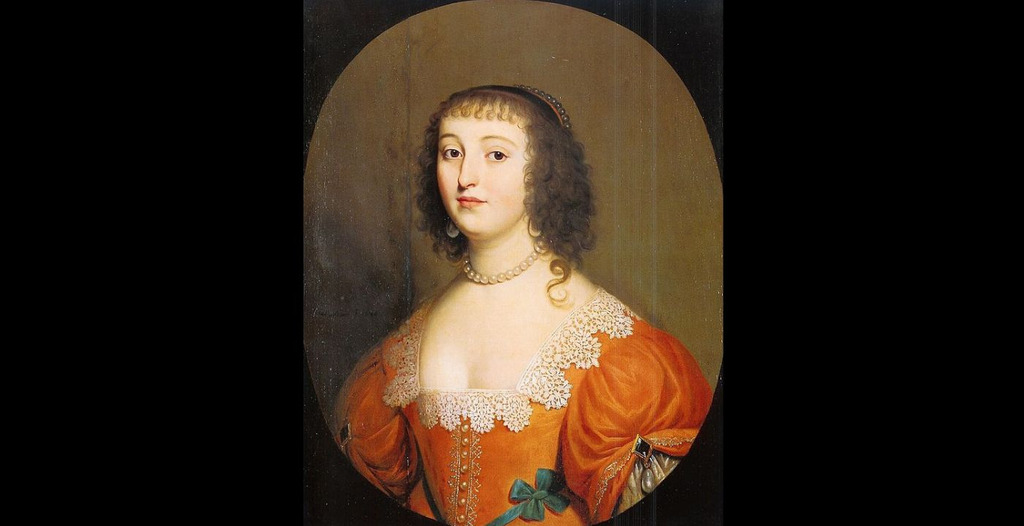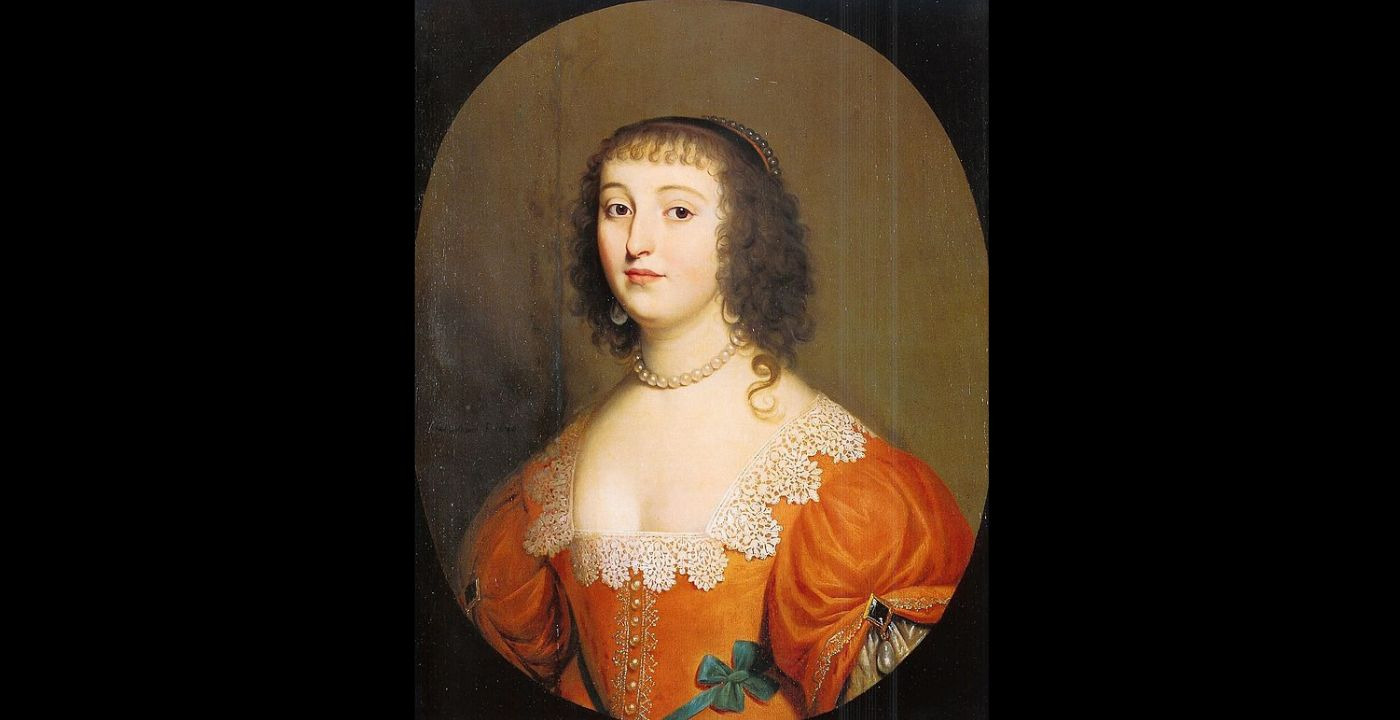Birth
December 26th, 1618 in Heidelberg, GermanyDeath
February 11th, 1680 in Herford, GermanyReligion
ProtestantElisabeth of Bohemia was known for her philosophical and intellectual expertise and for her correspondence with René Descartes, where she questioned certain fundamental principles of his work while endorsing his philosophical enterprise as a whole. She influenced the history of philosophy as a dialogue partner with Descartes, refining and critiquing his ideas, and as a representative of Cartesianism in Germany, where Descartes, prior to her influence, was almost unknown.
Much of Elisabeth's work and ideas have been lost to time, the letters between her and Descartes being the only documentation of her philosophical theories and expertise.
Personal Information
Name(s)
Elisabeth of Bohemia, Elisabeth of the Palatinate, Princess-Abbess of Herford Abbey, Elisabeth Simmern van Pallandt (birth name)
Family
Elisabeth of Bohemia was the third child and oldest daughter of Elizabeth Stuart, Princess of England, and Frederick V of the Palatinate. The couple had 13 children. Her mother, Elizabeth Stuart, was the daughter of James I of England and VI of Scotland, sister to Charles I, and granddaughter to Maria Stuart, better known as Mary Queen of Scots. Elizabeth Stuart led an eventful politically-engrossed life, including a short time as Queen of Bohemia and a long period of exile in the Netherlands. Elizabeth Stuart’s residence in exile in The Hague, was considered an important cultural and intellectual meeting point for Protestants.
Princess Elisabeth of Bohemia’s father, Frederick V of the Palatinate, earned the nickname of the “Winter King” due to the brevity of his reign of Bohemia, which effectively lasted just 9 months. He spent the rest of his life in exile and died when Elisabeth was only 13 years old.
Elisabeth spent the first few years of her life under the care of her paternal grandmother Louise Juliana of the Palatinate and aunt Elisabeth Charlotte, Electress of Brandenburg, in Heidelberg. After the Battle of White Mountain, which marked the beginning of the 30 Years’ War and the end of her parents’ reign of Bohemia, Elisabeth moved residence under the care of her grandmother and her aunt several times, before she (10 years old at the time) and her brother were brought to the Netherlands, where her parents had found exile. Elisabeth and her siblings were educated at a children's court in Leiden called Prinsenhof. Princess Elisabeth’s mother is said to have secured not only a basic education in Latin and Greek for her daughters, but also allowed them to excel in these languages, as Elisabeth did. The main difference between the boys’ and the girls’ education at Prinsenhof appears to be that the boys received military training while the princesses rested. Elisabeth’s youngest sister Sophie maintained that the strict education Elisabeth and her brother had received from their grandmother and their aunt in Brandenburg always remained important. After her father’s death, her mother brought the children to her own court in The Hague. Here, Elisabeth profited from rich cultural and intellectual surroundings.
Marriage and Family Life
Elisabeth did not marry and did not have any children. Elisabeth was a princess and born into a family with strong political ties all over Europe and England, yet her parents’ political status, especially after the short reign over Bohemia, was strained and Elisabeth spent most of her childhood and youth in exile. Marrying the daughter of the “Winter King” in exile would likely have had negative political ramifications, and Elisabeth’s family was not interested in marriages below their social status for the children. There was only one confirmed proposal to Elisabeth, from King Wladislaw I of Poland, which was rejected for political reasons and his Catholicism. There is some disagreement in scholarship on the question of whether and to what degree Elisabeth herself decided not to get married to King Wladislaw, and not to get married at all.
Elisabeth’s youngest sister, Sophie of Hanover (1630-1714), with whom Elisabeth shared a strong bond, was interested in Gottfried Wilhelm Leibniz’s ideas and was, just as Elisabeth herself, a representative of tolerant religious policies. Leibniz dedicated his Theodicy to her. In 1701 she became heiress presumptive to the throne of England by the Act of Settlement. Sophie died two months before she would have become Queen of England, but the Act of Settlement meant that her son became George I of Great Britain and Ireland. Until today, all heirs to the throne of Britain are by law Protestant descendants of Sophie as parent mother of the line of succession. Sophie’s daughter Sophie Charlotte (1668-1714), niece to Elisabeth, maintained the close bond to Leibniz that her mother had established. She became Queen of Prussia and helped Leibniz found the Academy in Berlin.
Elisabeth’s sister Luise Hollandine (1664-1709) was a talented portrait artist, who was taught by Gerrit von Honthorst. She mainly portrayed women and is the painter of the portrait of her sister Sophie as a Native American. There is speculation that this guise was to express an interest in the exotic experiences of the New World with which their generation was confronted.
Elisabeth’s sister Henriette Marie (1626-1651) was a talented young woman who died at the early age of 25, shortly after marrying Sigismund Rákoczy.
Elisabeth’s brother Charles Louis (Karl Ludwig) reclaimed his father’s title of Elector Palatine, along with most of its former territories, and was known for his one-sided divorce from his first wife and subsequent bigamous marriage to his second wife, as well as his strict political reign.
Elisabeth’s brother Rupert became Duke of Cumberland and colonial governor. He was also a scientist and artist. As a Royalist commander in the English Civil War, he is remembered today as one of the most colorful and prominent warriors in English history. He is said to have been “death-defyingly courageous” but also impatient and guilty of misjudgement.
Education
As a woman of high rank, Elisabeth was thoroughly well-educated. She mastered Latin and Greek easily and spoke French and English fluently. She was also educated in mathematics, politics and philosophy. Her siblings gave her the nickname “La Grècque” for her interest in Greek language, philosophy and culture, which provided ideals of emancipated female figures. As is evident from the varied fields in which her siblings were educated, her interest in philosophy and the sciences was at least partly a choice of her own. Like all women of her time (with Anne van Schurmann being an important exception), she was not able to study at a university; yet in Leiden and at her mother’s estate in The Hague, Elisabeth was surrounded by many important intellectual figures of her time, among them several women. She established many intellectual ties and initiated correspondences on philosophy and the sciences.
Religion
Elisabeth was a Protestant and remained a Protestant throughout her life, while some of her siblings converted to Catholicism. In 1667 she became Abbess of Herford Abbey. She provided refuge to religious sects such as the Quakers and Labadists, and was famed for her tolerant religious policies.
less
Significance
Work
The most important documentation of Elisabeth’s philosophical ideas are her correspondences with René Descartes, featuring one of the most important critiques Descartes was confronted with. Elisabeth began correspondence with Descartes in 1643 when she was just 24 years old. In her first few letters, Elisabeth questions Descartes’ conception of the dualism of body and soul, especially with regard to the possibility of free action. She discusses with Descartes themes like happiness, the passions, and mathematics. Elisabeth’s letters to Descartes reveal an intellectually independent standpoint and avid philosophical interest. In 1644, Descartes dedicated his Principia Philosophiae to Elisabeth, and said, not without self-praise: “...but of the vigour of your intellect I have a still stronger proof, and one particular to myself, in that I have never met anyone who understood so generally and so well as yourself all that is contained in my writings. […] and I remark, in almost all those who are versant in Metaphysics, that they are wholly disinclined from Geometry; and, on the other hand, that the cultivators of Geometry have no ability for the investigations of the First Philosophy: insomuch that I can say with truth I know but one mind, and that is your own, to which both studies are alike congenial, and which I therefore, with propriety, designate incomparable.”
With her letters, Elisabeth influenced Descartes’ later works and the arguments with which he defended his claims, and was the first person to question certain fundamental aspects of Descartes’ work while endorsing his philosophical enterprise. She therefore influenced the history of philosophy in two significant ways: as a dialogue partner to Descartes with whom he refined his ideas, and as a critic of Descartes. Furthermore, Elisabeth was one of the most important, if not the most important representative of Cartesian ideas in Germany, where Descartes, prior to her influence, was almost unknown.
Elisabeth also met the philosopher Leibniz in person and introduced him to Malebranche, which led to a long letter correspondence between the two men. Leibniz wrote to Elisabeth explaining his reactions to Malebranche. The detailed content of the letter shows clearly that Elisabeth was more than a princess who facilitated intellectual exchanges with Leibniz—she was a judge of philosophical debates on eye-level with these famed philosophers.
Elisabeth only formulated her ideas and philosophical delineations in letters and, unfortunately, many of her letter correspondences are lost. This means that her exchange with Descartes, saved by a fortunate and attentive discovery by a bookkeeper, is the most detailed evidence of her philosophical position we have. Elisabeth’s role in intellectual debates of her time is also documented in several further epistolary correspondences with other philosophers, in several works dedicated to her and the content of those dedications.
At a time when women were excluded from universities and academic institutions, Elisabeth used her aristocratic power not to entertain herself, but to create intellectual circles around herself. These intellectual circles were a center of exchange and fostered the development of the sciences in the 17th century. One important element of Elisabeth’s ‘salons’ was that women were not excluded as they were from universities and academies.
Reputation
During Elisabeth’s lifetime, she was well known for her philosophical and intellectual expertise and Descartes said of her that she had a mind without comparison, as cited above. She was also known for her tolerant religious politics and for offering refuge to the religiously exiled. After her death, she became a role model for many, including Émilie du Châtelet, who references her in a letter to Maupertuis. In 1853 Madame Blaze de Bury wrote the first biography of Elisabeth, Memoirs of Princess Palatine. Although Elisabeth remained a reference point for many intellectual women, her contributions, letters, and influence were long marginalized in philosophical scholarship. This changed at the end of the 20th century, in the rediscovery of intellectual women’s histories through feminist research. Today, Elisabeth’s correspondence with Descartes has been edited and translated into several languages and there is a considerable amount of scholarly work emerging on her ideas. Still, after centuries of neglecting her influence, many details of Elisabeth’s philosophical position, her political, cultural, and religious influence, and her biography are still to be studied.
One problem that needs overcoming in order to understand Elisabeth’s influence more accurately is the exclusion of letters as ‘works.’ We have to investigate Elisabeth’s correspondences and dialogues in order to find out more about her influence and her ideas.
less
Controversies
While the marriage proposal by King Wladislaw I of Polen is treated as a confirmed historical fact, the interpretations as to why the proposal was rejected vary. While some scholars attribute the rejection to Elisabeth’s loyalty to Protestantism, others claim that the marriage would simply not have been of political convenience for her family.
While it is clear that Elisabeth was well educated and had an early interest in philosophy and the sciences, the accounts as to how involved she was in her own education vary. While Bei der Wieden sees her education as a standard education for a woman of her rank and at her time, others emphasize her early self-directed friendship with Anna Maria van Schurmann, who was 10 years her senior and instructed her on philosophical, scientific and religious literature. The latter also emphasize the nickname “La Grècque” her siblings gave her. These scholars also refer to the fact that the Greek heroines were an example and treated as idols for women in the Early Modern Era.
Most importantly, her intentions in conversing with philosophers and scientists have been interpreted very differently. Bei der Wieden argues in his biography of Elisabeth that ulterior motives such as societal flattering and financial benefits were a main reason on both Elisabeth’s and the intellectuals’ part to engage in conversation. He also indicates that Elisabeth’s rank and supposed wealth—despite her actual financial status in exile—were a significant motivation for dedicating works to her. Other scholars argue that Elisabeth intentionally used her aristocratic status and wealth to gather intellectual circles around herself and to engage in philosophical and scientific discussions to which she otherwise would have had no access. The latter position is considerably more convincing, especially considering the depth of her early conversations with Descartes. Furthermore, the content and extent of Descartes’ dedication to her does not point towards mere financial or social interest; there was no need to call her mind incomparable and to say that no one, including any man, had understood his ideas as well as she did. As can be seen in the different paths her siblings took, it was clearly her own interest to engage in discussions on philosophy and the sciences. Although aristocratic women like Elisabeth used their status and wealth in order to engage in intellectual debates because they had no alternative avenues to do so, it does not follow that their male counterparts merely entered into conversations and dedicated works to these women for financial or social gain. Rather, these are examples of (very few) women who had access to education and were able to live out their philosophical or scientific interests to some extent. In the case of Elisabeth, we have proof that what she provided to Descartes was not money or societal status but a partner in dialogue on philosophical ideas. Leibniz’s detailed letter on his reaction to Malebranche also shows that he saw in her an able judge of the debate at hand.
less
Bibliography
Primary
Elisabeth of Bohemia, René Descartes (2007): The correspondence between Princess Elisabeth of Bohemia and René Descartes, ed. by Lisa Shapiro, Chicago: The University of Chicago Press.
Pfalz, Elisabeth von der; Descartes, René (2015): Der Briefwechsel zwischen Elisabeth von der Pfalz und René Descartes, ed. by Sabrina Ebbersmeyer, Paderborn: Fink.
Pfalz, Elisabeth von der; Descartes, René (2015): Der Briefwechsel mit Elisabeth von der Pfalz : Französisch – Deutsch, ed. by. Isabelle Wienand, Hamburg: Meiner.
Letter by Leibniz to Elisabeth of the Palatine (Nov. 1678): https://leibniz.uni-goettingen.de/files/pdf/Leibniz-Edition-II-1.pdf#nameddest=187b.
Dedication by Descartes to Elisabeth: Descartes, René. 1644. Principia Philosophiae. Amsterdam: Louis Elzevir.
Secondary Literature
Akkermann, Nadine (2021): Elisabeth of Bohemia’s Aristocratic Upbringing
4 and Education at the Prinsenhof, Rapenburg 4–10, Leiden, 1627/8–32, in Elisabeth of Bohemia (1618–1680): A Philosopher in her Historical Context, Sabrina Ebbersmeyer, Sarah Hutton (eds.), Springer, 3-18.
Alanen, Lilli (2004): Descartes and Elisabeth: A Philosophical Dialogue?, in Feminist Reflections on the History of Philosophy, Lilli Alanen and Charlotte Witt (eds.), New York, Dordrecht: Kluwer, 193–218.
Alanen, Lilli (2021): The Soul’s Extension: Elisabeth’s Solution to Descartes’s
27 Mind–Body Problem, in Elisabeth of Bohemia (1618–1680): A Philosopher in her Historical Context, Sabrina Ebbersmeyer, Sarah Hutton (eds.), Springer, 135-152.
Blaze de Bury, Marie Pauline Rose Stewart, (1853): Memoirs of the Princess Palatine, Princess of Bohemia including her correspondence with the great men of her day, London: Richard Bentley, New Burlington Street.
Bei der Wieden, Helge (2008): Elisabeth von der Pfalz. Äbtissin von Herford, 1618-1680. Eine Biografie in Einzeldarstellungen, Hannover: Verlag Hahnsche Buchhandlung Hannover.
De Baar, Mirjam (2021): Elisabeth of Bohemia’s Lifelong Friendship with Anna Maria Schurman (1607–1678), in Elisabeth of Bohemia (1618–1680): A Philosopher in her Historical Context, Sabrina Ebbersmeyer, Sarah Hutton (eds.), Springer, 19-36.
Ebbersmeyer, Sabrina (2011): Tristesse und Glück einer gelehrten Prinzessin. Der Briefwechsel zwischen Elisabeth von Böhmen und René Descartes, in Von Diana zu Minerva. Philosophierende Aristokratinnen des 17. und 18. Jahrhunderts, Ruth Hagengruber (ed.), Berlin: Akademie Verlag, 33-46.
Ebbersmeyer, Sabrina; Hutton, Sarah (2021): Introduction, Elisabeth of Bohemia (1618–1680): A Philosopher in her Historical Context, Springer, xvii-xix.
Hagengruber, Ruth (2011): Von Diana zu Minerva. Philosophierende Aristokratinnen des 17. Und 18. Jahrhunderts, in Von Diana zu Minerva. Philosophierende Aristokratinnen des 17. und 18. Jahrhunderts, Ruth Hagengruber (ed.), Berlin: Akademie Verlag, 11-32.
Hutton, Sarah (2021): Princess Elisabeth and Anne Conway (1631–1679): The
13 Interconnected Circles of Two Philosophical Women, in Elisabeth of Bohemia (1618–1680): A Philosopher in her Historical Context, Sabrina Ebbersmeyer, Sarah Hutton (eds.), Springer, 59-78.
Nye, Andrea (1999): The Princess and the Philosopher: Letters of Elisabeth of the Palatine to René Descartes, Lanham: Rowman & Littlefield.
Newmark, Catherine (2011): Prinzessin Elisabeth von Böhmen. Philosophin und Politikerin, in Von Diana zu Minerva. Philosophierende Aristokratinnen des 17. und 18. Jahrhunderts, Ruth Hagengruber (ed.), Berlin: Akademie Verlag, 47-64.
Zendler, Beatrice (1989): The Three Princesses, Hypatia, 4.1, 28–63.
Web resources.
Center for the History of Women Philosophers and Scientists, directed by Ruth Hagengruber, Paderborn University, Germany: https://historyofwomenphilosophers.org/project/directory-of-women-philosophers/simmern-van-pallandt-elisabeth-1618-1680/.
Project Vox, directed by Andrew Janiak, Duke University, USA: http://projectvox.org/princess-elisabeth-1618-1680/.
Shapiro, Lisa, Stanford Encyclopedia of Philosophy: https://plato.stanford.edu/entries/elisabeth-bohemia/?fbclid=IwAR0fc9y7iJ_XuyeCr56VeGsR3KsF9Cxny8QSv_Hgog1gH0KhAEdUxntQv-A.



Comment
Your message was sent successfully